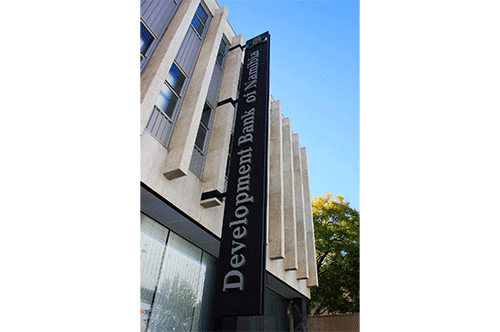The Development Bank of Namibia (DBN) recorded a loss of N$270 million during the 2022/23 financial year, compared to N$185 million the previous year.
“DBN remains sustainable due to its strong liquidity reserve. However, its medium to long-term sustainability depends on balance sheet growth, over and above optimal short to medium term resumption of repayments,” explained DBN board chairperson Sarel van Zyl.
A large contributor to performance was the increase in impairment of advances from N$432 million in 2022 to N$509 million in 2023.
“These results can be attributed to several factors, including the prolonged negative state of the economy exacerbated by Covid-19 and its impact on the ability of clients to repay loans,” reads the DBN 2022/23 integrated report that was launched yesterday in the capital.
DBN is mandated to contribute to the economic growth and social development of Namibia and for the sustainable promotion of the welfare of the Namibian people by mobilising financial and other resources from the private and public sectors nationally and internationally.
Despite steep interest rate increases, the report added that the net impact on interest income was only moderate due to the shrinkage of the loan book.
It stated that there has been a 11% increase in operating expenses to N$153 million, due to an increase in activity after Covid-19.
Loan book
Loans and advances stood at N$6.56 billion; reduced by N$408 million from N$6.97 billion in 2022. The depressed economic landscape also resulted in a slowdown in loan book growth.
“The difficult economic environment continued in 2022/23 leading to a worsening of the quality of the loan book. Significant growth in credit in the past, coupled with slow economic recovery and a reduction in security values resulted in an increase of N$77 million in impairments,” reads the report. It further stated that management is taking proactive measures to improve the quality of the loan book. Measures include reduced exposure to the more challenging sectors, business rescue activities where it is warranted, strengthening of the credit and portfolio management team, as well as more focused management of the loan book and collections activity.
Van Zyl said in addition to restrained demand for enterprise and infrastructure finance, DBN’s balance sheet growth is also challenged by the recovery of the Neckartal Dam loan and rapid, ongoing recovery of the loans for the Namibian Energy Fund’s strategic fuel storage facility.
Both these loans substantially inflated DBN’s balance sheet, he said.



